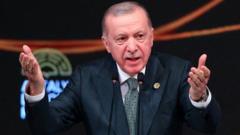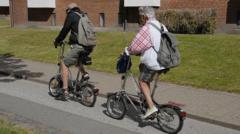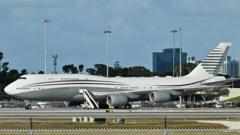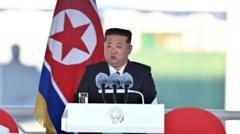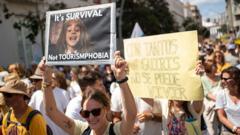Concerns grow over Turkey’s democracy as journalists are arrested during protests against the government.
**Turkey on Edge: Arrests of Journalists Spark Democracy Fears Amid Protests**

**Turkey on Edge: Arrests of Journalists Spark Democracy Fears Amid Protests**
Journalists detained during anti-government protests raise alarms over media freedom in Turkey.
The recent arrest of several journalists in Turkey has sent shockwaves through the media and democracy advocates, raising fears for the future of press freedom in the country. Among those detained was Yasin Akgul, an AFP photojournalist, who was taken from his home in Istanbul early one morning. Just hours prior, Akgul had been covering mass protests against the government, triggered by the arrest of opposition mayor Ekrem Imamoglu. The mayor’s supporters claim the charges against him are politically motivated, aimed at undermining his potential candidacy for the presidency.
While Akgul has spent over a decade capturing images from conflict zones worldwide, the experience of being arrested at home struck a deeper chord. With police breaking into his residence in front of his children, Akgul described a palpable chill in the air. "I've seen violence at protests, but police in my home—it felt more terrifying," he shared. His situation mirrors that of six other journalists detained during dawn raids, arrested under accusations of participating in illegal demonstrations.
The protests—banned by authorities—saw thousands rally in response to Imamoglu’s arrest. Eyewitness accounts describe brutal clashes with police, with Akgul on the frontline capturing dramatic moments of the unrest, including scenes that have since traveled the globe. He believes the authorities' strategy is to intimidate and deter journalists from documenting the ongoing protests, stating, "This message is to all journalists: Don't shoot, don't speak, don't film."
Since the protests began on March 19, approximately 2,000 people have reportedly been detained, many of them students, signaling a broader concern regarding governmental suppression of dissent among younger generations. Human Rights Watch's Turkey Director expressed that the government appears to be cracking down indiscriminately on perceived opposition, warning that the rights of public entities and individuals speaking out are in jeopardy. The lack of coverage of the events by state media further indicates a systemic effort to silence opposition voices.
In a juxtaposition of events, while Akgul was being released from prison, BBC reporter Mark Lowen was deported after being detained for hours. According to authorities, the deportation was due to insufficient accreditation, a claim that highlights the risks journalists face in Turkey.
Members of Imamoglu’s legal team also report feeling the repercussions of the crackdown, with lawyers expressing their concerns over the safety and fairness of their defensive duties. They remain committed to their cause, despite the uncertainties. As tensions persist, the opposition has vowed to continue protesting. Polls indicate that President Erdogan may lose the presidency to Imamoglu should the latter be able to contest the elections.
With the government's control over the media and suppressive actions against its critics, the future of democracy in Turkey appears increasingly precarious. Activists and journalists alike, like Akgul, remain determined to share their stories amidst the looming threat of censorship and violence. "Someone needs to do this job," Akgul affirmed, signaling his resolve to continue reporting despite the risks.
While Akgul has spent over a decade capturing images from conflict zones worldwide, the experience of being arrested at home struck a deeper chord. With police breaking into his residence in front of his children, Akgul described a palpable chill in the air. "I've seen violence at protests, but police in my home—it felt more terrifying," he shared. His situation mirrors that of six other journalists detained during dawn raids, arrested under accusations of participating in illegal demonstrations.
The protests—banned by authorities—saw thousands rally in response to Imamoglu’s arrest. Eyewitness accounts describe brutal clashes with police, with Akgul on the frontline capturing dramatic moments of the unrest, including scenes that have since traveled the globe. He believes the authorities' strategy is to intimidate and deter journalists from documenting the ongoing protests, stating, "This message is to all journalists: Don't shoot, don't speak, don't film."
Since the protests began on March 19, approximately 2,000 people have reportedly been detained, many of them students, signaling a broader concern regarding governmental suppression of dissent among younger generations. Human Rights Watch's Turkey Director expressed that the government appears to be cracking down indiscriminately on perceived opposition, warning that the rights of public entities and individuals speaking out are in jeopardy. The lack of coverage of the events by state media further indicates a systemic effort to silence opposition voices.
In a juxtaposition of events, while Akgul was being released from prison, BBC reporter Mark Lowen was deported after being detained for hours. According to authorities, the deportation was due to insufficient accreditation, a claim that highlights the risks journalists face in Turkey.
Members of Imamoglu’s legal team also report feeling the repercussions of the crackdown, with lawyers expressing their concerns over the safety and fairness of their defensive duties. They remain committed to their cause, despite the uncertainties. As tensions persist, the opposition has vowed to continue protesting. Polls indicate that President Erdogan may lose the presidency to Imamoglu should the latter be able to contest the elections.
With the government's control over the media and suppressive actions against its critics, the future of democracy in Turkey appears increasingly precarious. Activists and journalists alike, like Akgul, remain determined to share their stories amidst the looming threat of censorship and violence. "Someone needs to do this job," Akgul affirmed, signaling his resolve to continue reporting despite the risks.





